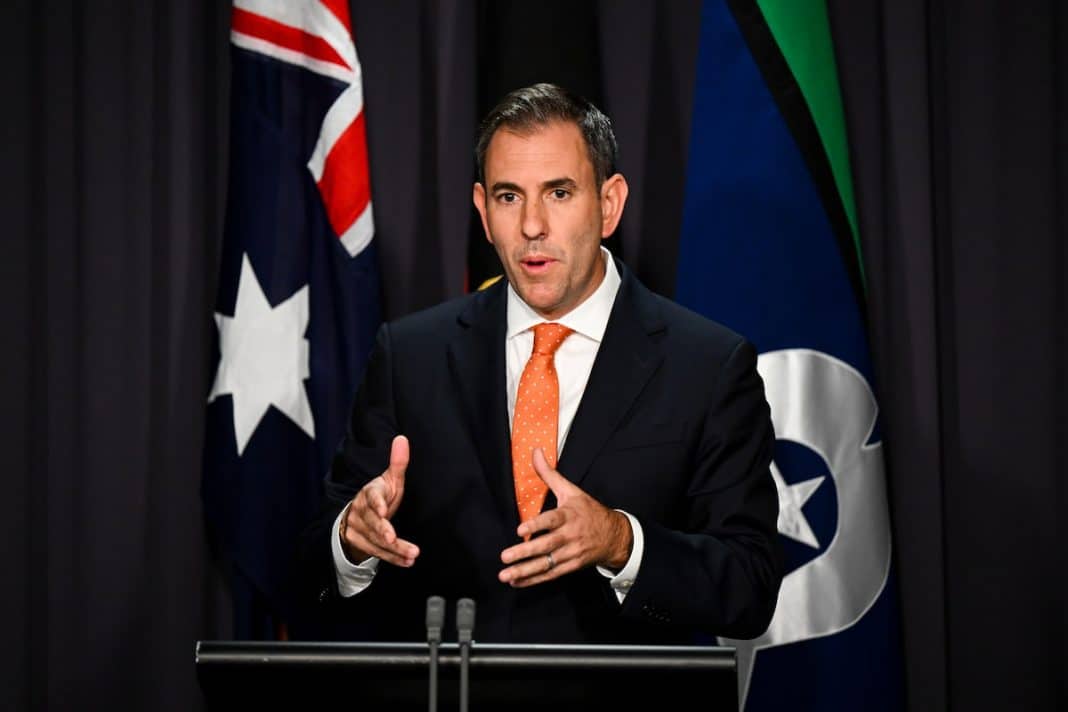Australians can expect a broader cost-of-living package than has been speculated in the lead-up to the federal budget.
Treasurer Jim Chalmers has declined to confirm the latest talk that welfare recipients aged 55 and older will receive a boost to JobSeeker payments.
The widely reported top-up would flow through to about 227,000 people and complement other changes to Centrelink.
However a week out from delivering his second budget, the treasurer told reporters he was concerned for those struggling without a job and a “substantial” package was planned.
“Will there be cost-of-living relief which is broader than that that’s been speculated on? The answer to that is yes,” Dr Chalmers said on Tuesday.
Welfare advocates remain concerned the extra money will fall short of the $100 a week they were seeking and exclude more than 680,000 younger people on JobSeeker and Youth Allowance.
Dr Chalmers said the JobSeeker payment already paid a different rate for people over 60 in recognition that it is harder to find a new job towards the end of a person’s working life.
Women over 55 were the most vulnerable group among unemployed Australians and warranted particular support, he said.
Greens social services spokesperson Janet Rice said there was enough money in the budget for a generous JobSeeker rise.
“Poverty is a political choice and the Labor government is spending $368 billion on nuclear submarines and $254 billion on tax cuts for the rich, instead of doing the bare minimum for people in a cost-of-living crisis.”
Tomorrow Movement’s Jas Walker said many young people were struggling to pay rent and bills as well as for food and health care.
The youth advocacy group has recorded stories of students dropping out of courses because they can’t afford essentials and many have been permanently couch-surfing or sleeping in cars.
“If the government doesn’t raise income support for all, including Youth Allowance, rent assistance and disability support payments, this budget will keep thousands of Australians in poverty,” Ms Walker said.
Opposition Leader Peter Dutton said the government needed to get the balance right and encourage people to work.
But he said small businesses were struggling to fill worker shortages.
“It’s frustrating if you’ve got Australians who have an ability to work who are refusing to work,” Mr Dutton told 2GB Sydney.
“There is a great argument for bringing back ‘work for the dole’. It provides an incentive to move off the dole into work, which is a better life for them.”
Dr Chalmers pointed out work for the dole had not been abolished under Labor.
New analysis also suggested the budget is in much better shape than expected, thanks to stubbornly high commodity prices, strong population growth and the rock-solid jobs market.
Independent economist and budget expert Chris Richardson says the federal government is likely to record a $7.5 billion deficit in this financial year – a $29.2 billion improvement on the October budget forecasts.
The strong upgrade to revenues from commodities has put the government in striking distance of a surplus but Dr Chalmers said such a suggestion was premature.
“The numbers are still bouncing around a bit,” he said.
By Poppy Johnston and Dominic Giannini in Canberra



